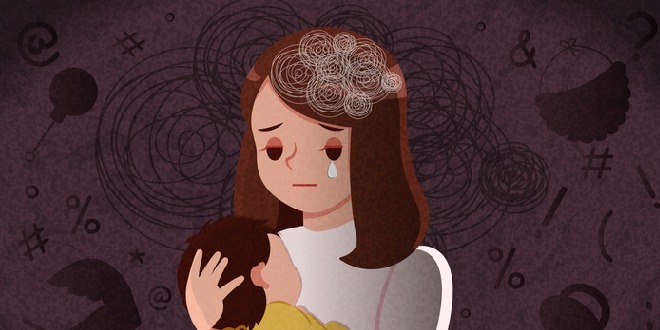Becoming a parent is a transformative experience that brings joy, love, and a newfound sense of responsibility. However, for some new mothers, this period can be marred by the onset of postnatal depression (PND). Postnatal depression is a complex and often misunderstood mental health condition that affects many women worldwide. In this article, we will delve into the vital role of postnatal depression therapists in helping individuals overcome it. By examining the various therapeutic approaches and the expertise of mental health professionals, we aim to provide hope and guidance for those who may be struggling.
Contents
When Should I Seek A Postnatal Depression Therapist?
 It’s natural for new mothers to experience a wide range of emotions during the postpartum period. However, it’s crucial to differentiate between typical postpartum emotional fluctuations and postnatal depression. Knowing when to seek help from a postnatal depression therapist is essential for early intervention and effective recovery.
It’s natural for new mothers to experience a wide range of emotions during the postpartum period. However, it’s crucial to differentiate between typical postpartum emotional fluctuations and postnatal depression. Knowing when to seek help from a postnatal depression therapist is essential for early intervention and effective recovery.
Here are some situations where you should consider reaching out to a mental health professional:
- Persistent low mood: If you find yourself feeling down or tearful for more than two weeks. And these emotions don’t seem to be improving, it may be a sign of postnatal depression.
- Loss of interest or pleasure: If you’re struggling to find enjoyment in activities you once loved or are experiencing a persistent lack of interest in caring for yourself or your baby, a therapist can help you navigate these feelings.
- Thoughts of self-harm or harming your baby: If you experience thoughts of harming yourself or your baby, it’s essential to seek professional help immediately. These thoughts can be a symptom of postnatal depression, and therapists are trained to help you cope and manage these feelings safely.
- Struggles with bonding: If you’re finding it difficult to bond with your baby or feel disconnected from your new role as a mother, a postnatal depression therapist can provide support and guidance.
- Overwhelming anxiety or panic: Excessive worry about your baby’s health, safety, or ability to care for them may indicate postnatal depression or anxiety. A therapist can help you manage these concerns and develop coping strategies.
- Social withdrawal: If you find yourself isolated from loved ones, avoiding social situations, or feeling unsupported, a therapist can help you reestablish connections and find the support you need.
Remember that there is no shame in seeking help for postnatal depression. Reach out to a mental health professional if you’re experiencing any of the symptoms mentioned above. Also, if you have concerns about your mental health during the postpartum period.
How A Postnatal Depression Therapist Can Help?
A postnatal depression therapist is a mental health professional trained to support and guide new mothers through the challenges of postnatal depression. They can provide invaluable help in various ways, such as:
- Accurate diagnosis
A therapist can assess your symptoms and determine if you’re experiencing postnatal depression or another mental health condition. Such as postpartum anxiety or postpartum psychosis. An accurate diagnosis is crucial for receiving appropriate treatment.
- Medication management
In some cases, medication may be necessary to alleviate the symptoms of postnatal depression. A therapist can collaborate with your healthcare provider to ensure proper medication management. Including monitoring side effects and adjusting dosages as needed.
- Support in developing a healthy routine
A therapist can help you establish a daily routine that promotes emotional well-being. Including regular exercise, healthy eating habits, and adequate sleep.
- Building a support network
A postnatal depression therapist can connect you with support groups, peer networks, or other resources, allowing you to share your experiences and learn from others who have faced similar challenges.
- Strengthening the mother-infant bond
A therapist can provide guidance and support to help you develop a stronger bond with your baby. And navigate the challenges of new parenthood.
- Follow-up care and relapse prevention
A postnatal depression therapist can provide ongoing support and monitor your progress. It helps you maintain emotional well-being and prevent relapse.
Remember that seeking help is a sign of strength, not weakness. A postnatal depression therapist is a valuable ally in your journey toward recovery, ensuring you receive the care and support you need to overcome this challenging condition.
What Are Some Commonly Used Techniques?
 Postnatal depression therapists employ a variety of evidence-based techniques to help new mothers navigate and overcome their challenges. Some commonly used techniques include:
Postnatal depression therapists employ a variety of evidence-based techniques to help new mothers navigate and overcome their challenges. Some commonly used techniques include:
- Cognitive-Behavioral Therapy (CBT): CBT is a widely used technique that focuses on identifying and changing negative thought patterns and behaviors. Through CBT, a therapist can help you develop healthier ways of thinking and coping with your emotions, leading to improved mood and overall well-being.
- Interpersonal Therapy (IPT): IPT is another evidence-based approach that focuses on addressing interpersonal issues and improving communication skills. This technique can help new mothers strengthen relationships with their partners, family members, and friends, which is crucial for emotional support during the postpartum period.
- Mindfulness-Based Cognitive Therapy (MBCT): MBCT combines elements of CBT with mindfulness practices, such as meditation and deep breathing. This approach can help new mothers become more aware of their thoughts and feelings, promoting better emotional regulation and stress management.
- Psychodynamic Therapy: This approach delves into the unconscious mind and explores how past experiences, unresolved conflicts, or childhood issues may be contributing to postnatal depression. Gaining insight into these underlying factors can promote healing and personal growth.
- Support Groups: Participating in support groups allows new mothers to share their experiences and learn from others who have faced similar challenges. This sense of connection and understanding can be a vital part of the healing process.
- Behavioral Activation: This technique involves identifying and engaging in activities that bring joy, satisfaction, or a sense of accomplishment. By gradually reintroducing these activities into daily life, new mothers can experience improved mood and motivation.
Each postnatal depression therapist may use a combination of these techniques, tailoring their approach to best suit the individual’s needs and circumstances. Open communication with your therapist about your preferences and progress is essential to ensure the most effective treatment possible.
How To Find A Postnatal Depression Therapist Near Me?
Embarking on the journey to find the right postnatal depression therapist can be overwhelming. But knowing where to start can help ease the process and put you on the path to recovery. So here are some tips to help you:
- Ask for referrals: Consult your primary care physician, obstetrician, or pediatrician for recommendations. They often have connections with mental health professionals experienced in treating postnatal depression.
- Use professional directories: Search online directories such as MantraCare or the American Psychological Association (APA) to find therapists specializing in postnatal depression in your area. These directories typically include therapists’ credentials, expertise, and contact information.
- Contact insurance providers: Reach out to your health insurance provider for a list of in-network therapists who specialize in postnatal depression. This can help reduce your out-of-pocket expenses.
- Seek local support groups: Many postnatal depression support groups can provide recommendations for experienced therapists in your area. Attending these groups can also offer additional emotional support during your recovery process.
- Personal recommendations: Ask friends, family members, or other new parents if they can recommend a postnatal depression therapist they’ve had a positive experience with. Personal recommendations can help you find a therapist with a proven track record of success.
Remember, seeking help is a sign of strength and self-awareness. And finding the right postnatal depression therapist is the first step towards reclaiming your well-being and enjoying the joys of motherhood.
Conclusion
In conclusion, a postnatal depression therapist plays a crucial role in helping new mothers navigate the complexities of postnatal depression. And find their way back to emotional well-being. These professionals offer invaluable support and guidance through various evidence-based techniques. And empowering mothers to develop healthy coping strategies and stronger connections with their loved ones. Ultimately, the support of a skilled postnatal depression therapist fosters resilience and hope, allowing women to overcome this challenging time and fully embrace the joys of motherhood.
For more information, please contact MantraCare. Online therapists are increasingly important in today’s world because they provide a convenient and accessible way for people to receive mental health support and treatment. Visit MantraCare If you are searching for a “therapist near me”. Book a trial Online therapy session


